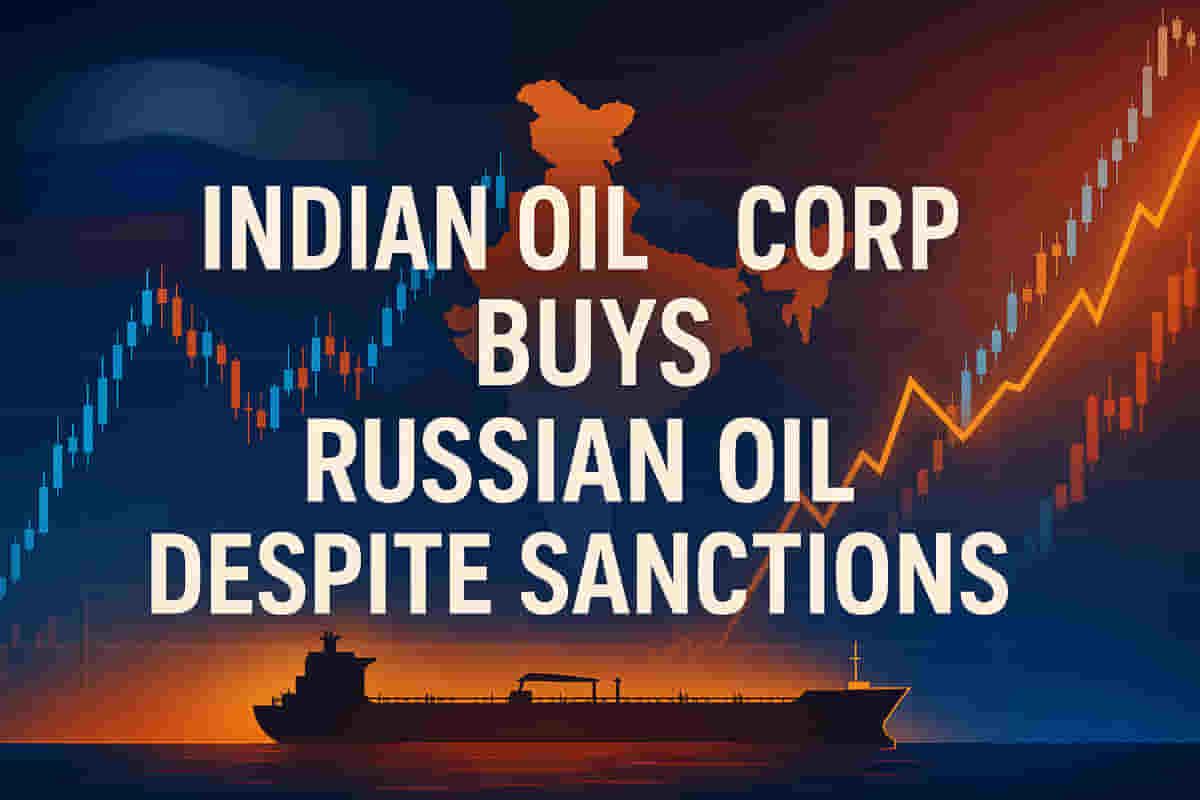Indian Oil Corp Resumes Russian Oil Purchases Amid US Sanctions
Energy
|
Updated on 31 Oct 2025, 03:17 am
Reviewed By
Aditi Singh | Whalesbook News Team
Short Description :

▶
Stocks Mentioned :
Detailed Coverage :
Indian Oil Corporation (IOC), India's largest refiner, has continued its procurement of Russian oil by buying five shipments, known as cargoes, expected to arrive in December. These purchases are being made from entities that are not under international sanctions. This decision marks a resumption of buying activity, even as the United States has intensified efforts to pressure Russia over the conflict in Ukraine by imposing sanctions on Rosneft and Lukoil, two of Russia's largest oil producers.
Following these US sanctions, several other prominent Indian refiners, such as state-run Mangalore Refinery and Petrochemicals Ltd (MRPL), HPCL-Mittal Energy Ltd, and Reliance Industries, had temporarily halted their purchases of Russian crude. However, IOC, through its head of finance Anuj Jain, has indicated a commitment to continue buying Russian oil, provided the transactions strictly adhere to existing sanctions. This strategy allows Indian refiners to benefit from significant discounts offered by Russia, which has been compelled to sell its oil at lower prices due to sanctions imposed by the European Union, the UK, and the US. India has emerged as a major buyer of Russian seaborne crude over the past three years.
The specific oil bought by IOC is approximately 3.5 million barrels of ESPO crude, priced close to Dubai quotes for December delivery. The attractiveness of ESPO crude has increased for Indian buyers because demand from China has softened after its state refiners suspended purchases post-US sanctions, and Chinese independent refineries have used up their import quotas. This has led to a price drop, making it economically viable for India.
Impact: This news has a moderate to high impact on the Indian stock market, particularly on companies involved in the energy sector. IOC's decision could affect its operational costs and profitability due to discounted pricing. It also highlights India's energy security strategy and its balancing act between international relations and economic interests. The move might attract attention from international bodies, but IOC's adherence to sanctioned entities mitigates immediate direct impact. However, the broader geopolitical tensions surrounding oil trade continue to be a factor for market sentiment. Rating: 7/10.
Difficult Terms Explained: Sanctions: Penalties or restrictions imposed by one country on another, typically for political or economic reasons. In this context, they are measures taken by the US and allies against Russia. Cargoes: A shipment of goods transported by ship. Here, it refers to shipments of oil. Refiner: A company or facility that processes crude oil into usable petroleum products like gasoline, diesel, and jet fuel. Crude oil: Unprocessed petroleum that is extracted from the ground and then refined. Seaborne crude: Crude oil transported by sea via tankers. ESPO crude: A grade of crude oil produced in Eastern Siberia, Russia, and exported via the ESPO (Eastern Siberia-Pacific Ocean) pipeline and port of Kozmino.
More from Energy

Energy
India's green power pipeline had become clogged. A mega clean-up is on cards.
Latest News

Auto
Suzuki and Honda aren’t sure India is ready for small EVs. Here’s why.

Brokerage Reports
Stocks to buy: Raja Venkatraman's top picks for 4 November

Mutual Funds
Quantum Mutual Fund stages a comeback with a new CEO and revamped strategies; eyes sustainable growth

Tech
Why Pine Labs’ head believes Ebitda is a better measure of the company’s value

Banking/Finance
SEBI is forcing a nifty bank shake-up: Are PNB and BoB the new ‘must-owns’?

Industrial Goods/Services
India’s Warren Buffett just made 2 rare moves: What he’s buying (and selling)
Renewables Sector

Renewables
Brookfield lines up $12 bn for green energy in Andhra as it eyes $100 bn India expansion by 2030
Startups/VC Sector

Startups/VC
a16z pauses its famed TxO Fund for underserved founders, lays off staff
Renewables Sector

Brookfield lines up $12 bn for green energy in Andhra as it eyes $100 bn India expansion by 2030
Startups/VC Sector
